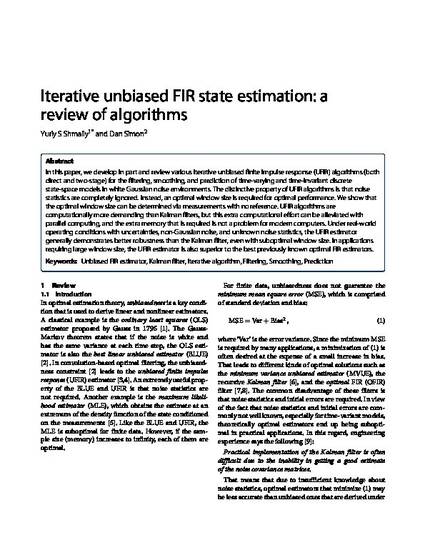
In this paper, we develop in part and review various iterative unbiased finite impulse response (UFIR) algorithms (both direct and two-stage) for the filtering, smoothing, and prediction of time-varying and time-invariant discrete state-space models in white Gaussian noise environments. The distinctive property of UFIR algorithms is that noise statistics are completely ignored. Instead, an optimal window size is required for optimal performance. We show that the optimal window size can be determined via measurements with no reference. UFIR algorithms are computationally more demanding than Kalman filters, but this extra computational effort can be alleviated with parallel computing, and the extra memory that is required is not a problem for modern computers. Under real-world operating conditions with uncertainties, non-Gaussian noise, and unknown noise statistics, the UFIR estimator generally demonstrates better robustness than the Kalman filter, even with suboptimal window size. In applications requiring large window size, the UFIR estimator is also superior to the best previously known optimal FIR estimators.
